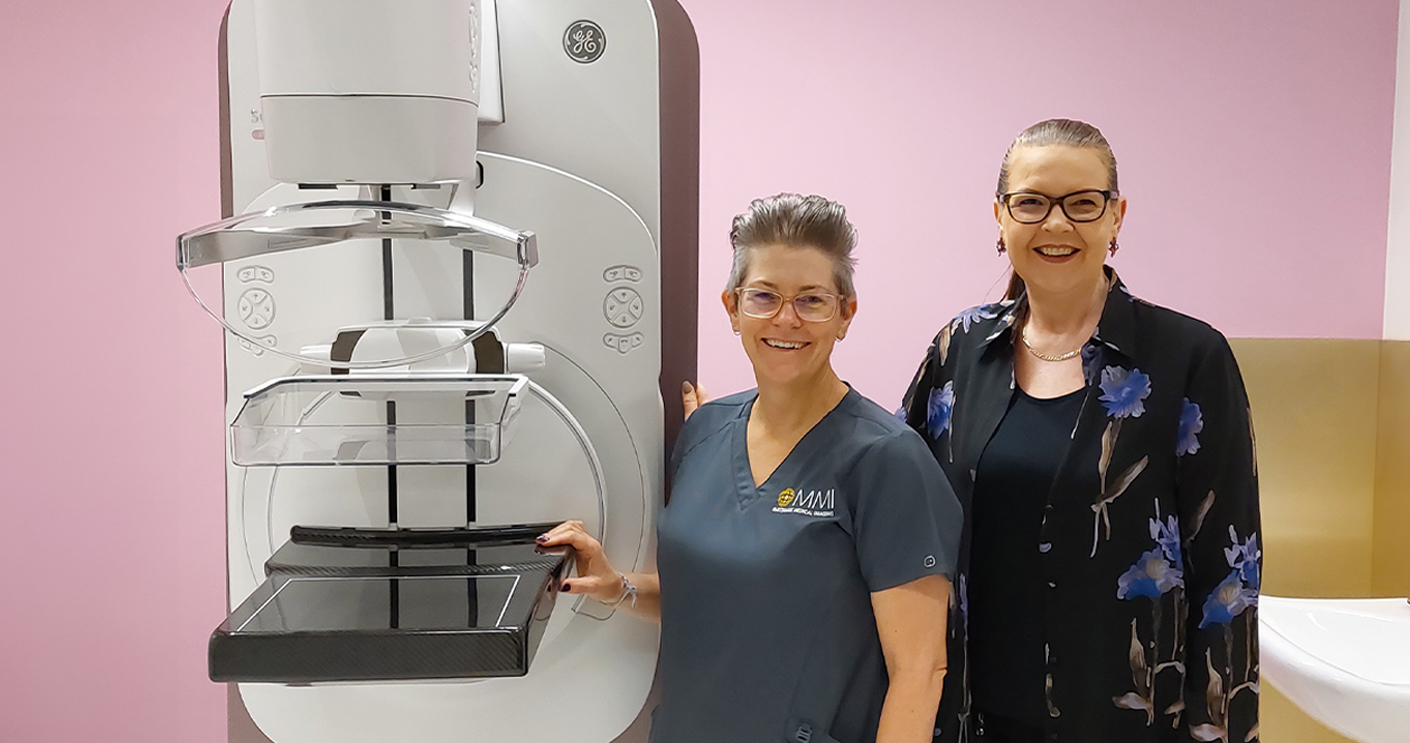Pictured L to R: Kirstin Geyer, MMI Lead Radiographer and Sandra Fielding, MMI Special Projects Manager
Macquarie Medical Imaging (MMI) has acquired new state-of-the-art equipment designed to make having a mammogram a more comfortable experience while returning some control to the patient.
A clear image is reliant on compressing the breast tissue between the machine’s plates, both horizontally and vertically, making it anything between uncomfortable and extremely painful for patients.
However, the new GE Senographe Pristina is the first digital breast tomosynthesis (DBT) system to allow the patient to control the level of compression.
In clinical trials, this feature has been shown to not only reduce pain but also provide a better image, as when patients are in control, they tend to choose more than the minimum level of compression necessary for a clear image.
The Pristina has soft, curved surfaces and arm rests that allow the patient to relax their muscles, while older-style machines have hand grips that encourage them to tense up.
It also features 3D imaging that provides superior diagnostic accuracy for radiographers while delivering the same amount of radiation as 2D imaging equipment.
MMI Lead Radiographer, Kirstin Geyer, says having a mammogram has traditionally been a stressful, painful time for many women.
“When someone comes in for a mammogram, they may have found a lump or have had their own experience or family history of breast cancer, and there is understandably a lot of fear and anxiety associated with that,” she says.
“The compression, the hard, cold surfaces of some equipment and the uncomfortable positions they require only add to that.
“We anticipate this new machine will help make the experience better by giving the patient some control over the process. Our radiographers are here to fully support them every step of the way.”
The new machine was delivered and commissioned in the first week of October and used for the first time this week.


 Back to homepage
Back to homepage
Comments
We encourage active and constructive debate through our comments section, but please remain respectful. Your first and last name will be published alongside your comment.
Comments will not be pre-moderated but any comments deemed to be offensive, obscene, intimidating, discriminatory or defamatory will be removed and further action may be taken where such conduct breaches University policy or standards. Please keep in mind that This Week is a public site and comments should not contain information that is confidential or commercial in confidence.